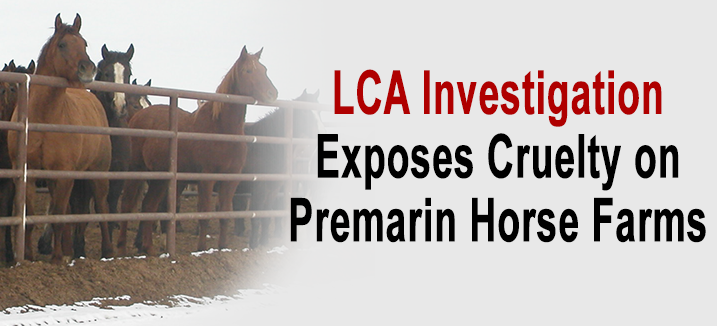
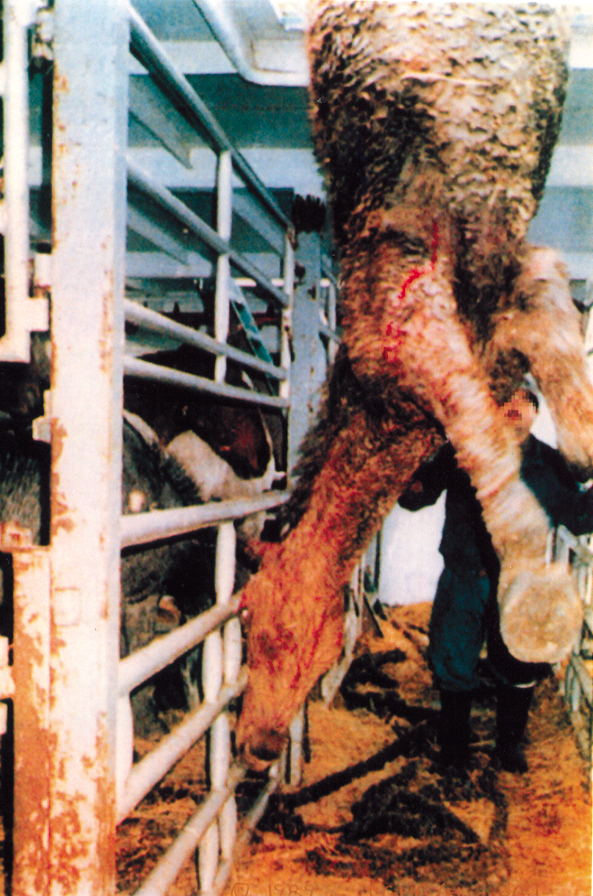 A Premarin foal hoisted for slaughter
A Premarin foal hoisted for slaughter
Photo Courtesy: Horse Aid
In 2003, LCA's Sam Simon Special Investigations Unit completed an investigation that exposed the horrendous mistreatment of pregnant mares and foals in the production of the #1 selling hormone replacement therapy (HRT) drug Premarin (Pregnant Mare's Urine) and the Premarin family of products (Prempro, Prempak-C, and Premphase), which are used by approximately 11 million women each year to treat menopausal symptoms. Manufactured by Wyeth Pharmaceuticals (part of Pfizer since January 2009), Premarin uses conjugated equine estrogens (CEEs) as the hormonal component.
Harvested for their urine, the horses suffer terribly for the production of this drug. LCA's undercover investigation revealed horses were kept continually pregnant in stalls too small for them to even turn around in order for their urine to be collected by filthy, bulky tubing attached to their bodies. When the horses were no longer able to reproduce quickly they were sent to the slaughterhouse, and their meat was sold for human consumption or dog food.
LCA Claims Victory for 40,000 Horses
In 2002, Wyeth reported $1.88 billion in worldwide sales of the Premarin family of drugs; however, the same year, the Women's Health Initiative issued a report linking the drug to an increased risk of breast cancer, heart disease, blood clots, heart attacks, and stroke. On October 14, 2003, following the summer release of LCA's undercover investigation, Wyeth Ayerst announced a 50 percent cut back in the production of the drug, saving 20,000 mares from having to stand in tight, cramped stalls during their 150-day gestation period and another 20,000 foals from going to the slaughterhouse. The number of pregnant mare urine (PMU) farms in North America decreased in 2010 — from 400 farms at the peak of manufacture to 26 ranches — but this news is tempered by the fact that PMU farming operations have expanded to other countries like China.
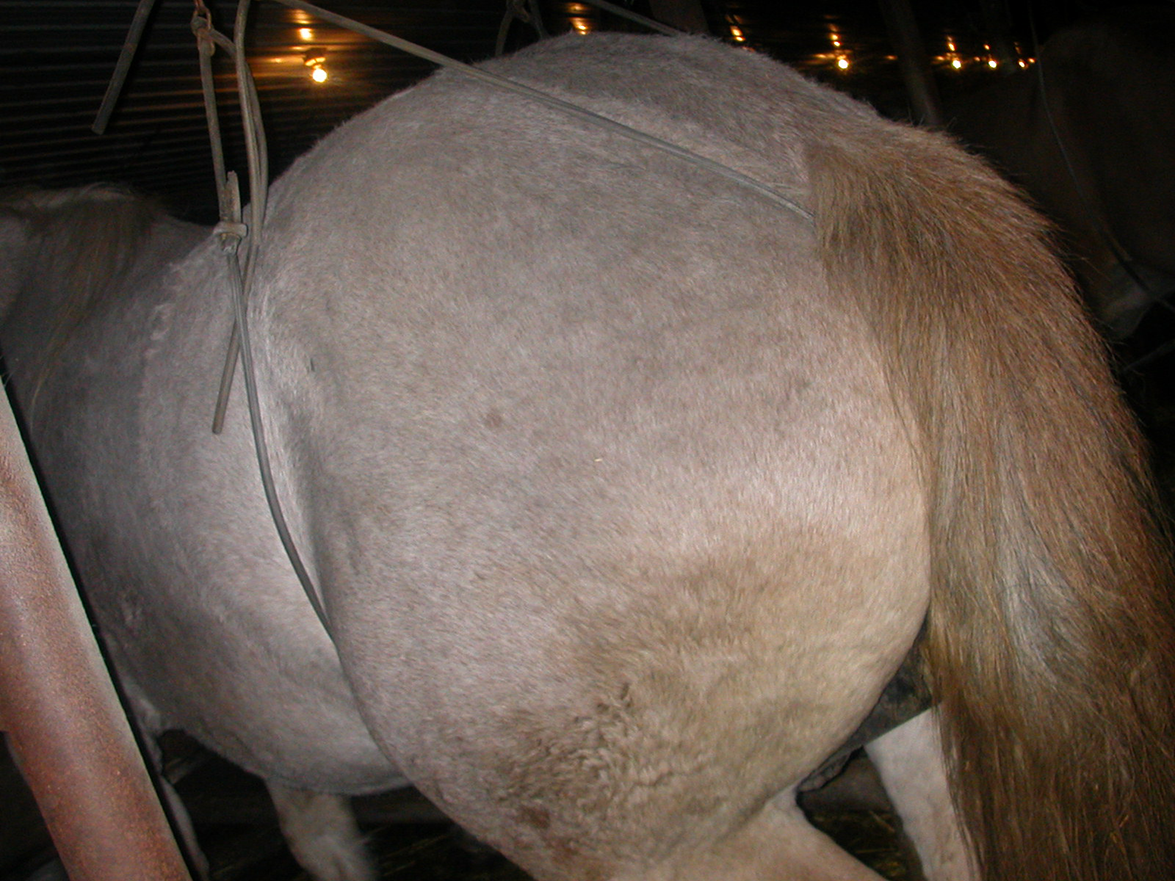 Mare with a urine collection device strapped to her body
Mare with a urine collection device strapped to her body
Living Conditions
In order to produce PMU, mares are impregnated and confined to tiny stalls in "pee barns". They are fitted with a short rope or chain, a harness, and a urine collection bag which scrapes their legs, causing sores. As a result of these restrictive devices, the mares are made virtually immobile. They can take only a step or two in any direction and are unable to turn around or lie down comfortably.
Because farmers find sufficient bedding costly and bothersome to clean, the animals frequently have no protection from the cold concrete floor. Moreover, farmers restrict the amount of water given to the mares because water dilutes the concentration of their urine, making it less profitable. Their food supply is similarly inadequate, and they do not receive sufficient veterinary care. Most mares are never removed from the stall and allowed to graze. Deprived of exercise, they cannot utilize their natural athleticism and sociability, kick up their heels, stretch their muscles, or flex their joints.
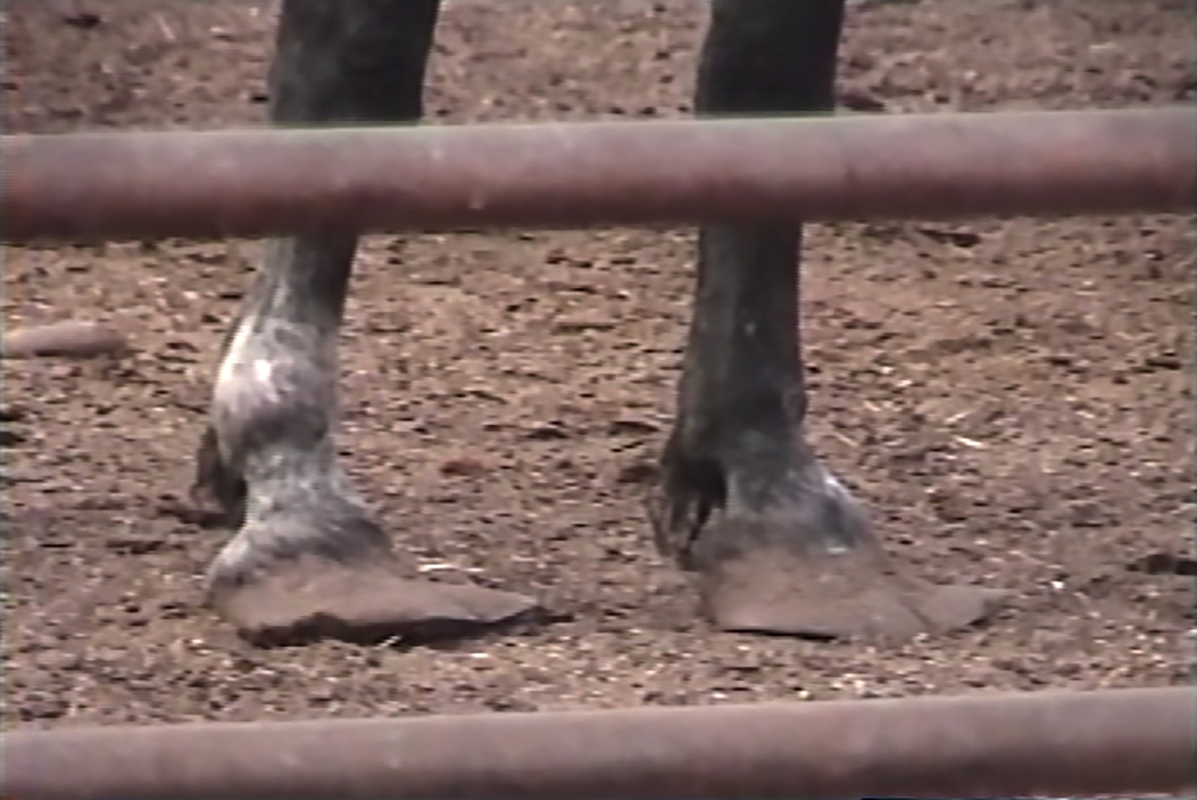 Overgrown hoovesHealth Problems Common to Mares Used in Premarin Production
Overgrown hoovesHealth Problems Common to Mares Used in Premarin Production
- Dehydration
- Hoof injuries
- Leg injuries, sores, and lacerations
- Swollen joints
- Edema
- Liver disorders
- Kidney disorders
- Premature death
Reproduction
The vast majority of Premarin mares give birth to a foal every year. Afterward, they are almost immediately impregnated again. If they fail to become pregnant, they are sent to slaughter. If they do become pregnant again, their foals are taken from them at the premature age of just three to four months. Most mares naturally resist separation from their babies so they are often whipped, kicked, or beaten with an electric prod until they finally allow their foal to be taken.
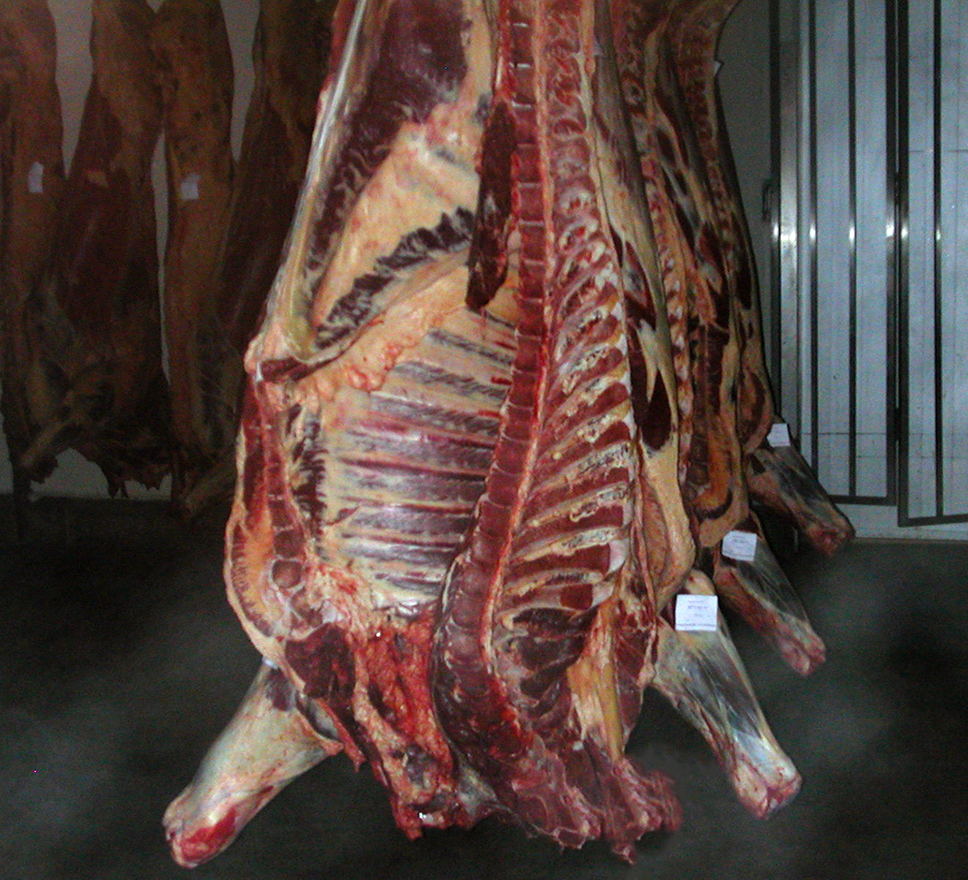 Foal carcass at a slaughterhouse FoalsFoals
Foal carcass at a slaughterhouse FoalsFoals
The male foals are generally killed immediately after birth for their meat, while the females are used are replacement "Premarin mares" for their worn-out mothers. Those that aren't killed immediately are sold and sent to feedlots to be fattened for slaughter; their meat is then shipped off to Japan, France, or other parts of Asia and Europe for human consumption.
Transport to the Slaughterhouse
Like other "food animals," mares and foals are typically deprived of food and water during transport to the slaughterhouse. They do not have an opportunity to rest, nor do they receive veterinary care. Instead, they are crammed onto trailers so crowded that the smaller ones, particularly the foals, are sometimes crushed under larger animals. Those that are too weak to stand will literally be dragged off of the truck along with the animals that have died en route.
Corporate Greed
Thousands of horses suffer to produce Premarin even though several humane estrogen replacement therapies exist (see below under "What You Can Do" for alternatives). Why don't Premarin manufacturers switch to a cruelty-free alternative? Because they say it would cost them more money.
The Law
Animal cruelty laws and government regulations do not apply to the treatment of mares on Premarin farms. Instead, the standard of care is dictated only by an inadequate "code" which is poorly enforced. Thus the horses receive virtually no legal protection.
Behind the Scenes Video
 |
 |
|
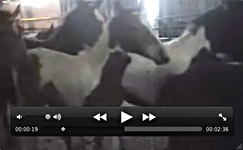 |
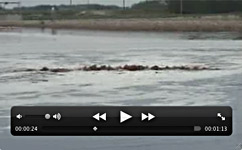 |
|
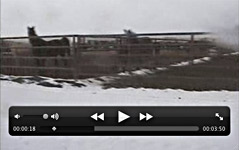 |
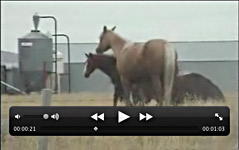 |
What You Can Do:
1. Make the Switch
If you currently take Premarin, Prempak-C, or Premphase, ask your doctor about equally effective synthetic or plant-based alternatives, such as Cenestin, Estrace, Estraderm, Ogen, OrthoEst, Estratab, Menest, Estinyl, Estrovirus, OrthoDienestrol, Tace, Climara.
2. Make Some Noise
Contact Wyeth-Ayerst at 1-800-666-7248 to express your outrage over Premarin production. Similarly, Contact Ian Reed, Chairman & CEO of Pfizer and demand Pfizer to produce a more humane product!
Ian Read - Chairman, CEO of Pfizer Inc
235 East 42nd Street
New York, NY 10017
Phone: 1-212-733-2323
Write a letter to your local newspaper about the cruelty of Premarin production and the safe alternatives available to women. Educate others about the suffering inherent in Premarin production.
3. Go Vegan
A healthy vegan diet can reduce menopausal symptoms, especially those diets supplemented by soy products containing plant-based estrogens.
For More Information:
- June 2005 – the International Agency for Research on Cancer, the U.N.'s cancer research agency, reclassified Prempro from "possibly carcinogenic" to "carcinogenic."
- The Women's Health Initiative has done numerous studies on the health impacts of Premarin products. These studies have revealed the negative health risks associated with these drugs and the danger they pose to women's health. View the Women's Health Initiative studies.
- Download LCA's "Know the Facts About Premarin Production" leaflet.
- LCA Claims Victory for 40,000 Horses.
![]() Learn more about: Horses - BLM Investigation
Learn more about: Horses - BLM Investigation